Seven Lovely Horse-Based TV Shows With Gorgeous Theme Tunes
Where the clouds are made of candy floss...
Some say Andrew Scott’s character in Fleabag was the hottest TV Catholic priest.
But I respectfully disagree.
There is no animal better served for great TV shows with great theme tunes than the noble horse.
Hong Kong Phooey? Phooey, indeed!
The Littlest Hobo? Just keep movin’ on.
Scooby Doo, Where Are You? Off you trot, haven’t you got some work to do, now?
Whether you’re a dog person, a cat person or completely animal-sceptic, you have to admit that the horse, or to give him his posh name Equus Ferus Caballus - a mighty and appropriate name for this most glorious of animals - has a particularly rich television history with some great tunes. The shows are pretty good too.
Mister Ed The Talking Horse (1961-66)
The magic of this show rests in the complete lack of any attempt to explain how Mr Edd can talk or, given that he can talk, why he chooses to talk only to his owner Wilbur. No spill of radioactive material, no visitation from alien or wizard. It is left to the viewers to puzzle and argue it out.
Some fans say that they made a final wrap-up episode which was never aired, in which it is revealed that the events of the entire series only existed in Wilbur’s head and he actually lives in a rest home for the terminally bewildered where he happily talks to a crocheted horse.
I even spoke to a guy online once who claimed to own a copy, but I give that no credence.
The White Horses (1965, dubbed into English in 1968)
Now we come to three staples of British children’s television in the seventies, all involving a displaced, feisty female lead, a kindly father or father-figure, and spirited horsies. And absolute killer theme tunes.
“So when I can only see the grey
Of a sad and very lonely day
That’s when I… softly sigh…”
Yes, I know the show was originally in German, but I watched it in English, so for me, it dates from 1968. The theme tune is remembered more clearly and more fondly than the show itself.
The evocative theme song, White Horses is fairly well-known if you are of a certain age. A magical trip to a dreamy faraway land with the plaintive vocals of Irish soul-singer Jackie Lee over a gorgeous orchestral backing.
It was written by Michael Carr and Ben Nisbet and sung by Irish soul singer Jackie Lee, which reached number 10 in the pop charts in April 1968.
The show was dubbed into English and repeatedly shown during school holidays or on Saturday mornings throughout the seventies.
Based on a series of books by the Yugoslavian author Vladimir Carin, The White Horses follows the adventures of Julia, a fifteen-year old girl, played by Helga Anders, who leaves Belgrade to spend a holiday with her uncle Dimitri on his stud farm where, with the help of head groom Hugo (Franz Muxeneder), he trains valuable white Lipizzaner horses.
In the opening story, one of the horses - Boris by name - is stolen by gypsies who dye his white coat brown so that no one will recognise him. Julia and Hugo set off to find Boris and upon his recovery an affinity is formed between girl and horse thus setting the scene for the rest of the 13-part series.
It is rumoured that there were complaints that the equine Equity member playing Boris had donned brownface - and, indeed, brownbody, brownlegs and brownarse - for the role and he found it difficult to get work for a few years afterwards, but I have not been able to confirm or deny this.
Follyfoot (1971-73)
“Dreams come true if you want them to,
If you want them to, then its up to you...”
The show that invented angst-ridden teenage drama - Young Adult, years before the term existed.
The basic premise was very similar to The White Horses, although less happy. Gillian Blake played troubled posh girl Dora, dumped by her foreign-bound diplomat parents at Follyfoot Farm to stay with her uncle for a year. Just like any abandoned animal.
Steve Hodson was the hot male lead with a troubled past, and the soap-opera on-off, will-they, won’t they? romance with Dora was beautifully played.
The underlying theme of the show is that Follyfoot Farm is a place where those injured and those abandoned get a second chance. And this is not limited to the horses. Many episodes mirror a story of animal cruelty with that of a human who has been wronged in some way. The show has a big heart and never talks down to its young audience.
From the eerily disconcerting opening bars, the theme tune The Lightning Tree, performed by The Settlers, creates the perfect preface to the look and feel of what is about to unfold.
The show’s teatime viewing slot disguised what a gripping drama it was. Many people in the UK remember the theme tune fondly. Some of us also remember the show even more fondly. It’s available on DVD and also on Daily Motion.
The Adventures Of Black Beauty (1972-74)
“Come on, Beauty. Stay still for the portrait painter. Only another three hours.”
1877’s Black Beauty was the only novel Anna Sewell wrote. She was paid £40 for it, which doesn’t sound like much, but it equates to around £6,000 in today’s terms, which still doesn’t sound like much. That said, reading the rest of Substack, there’s probably a few writers on here who would be chuffed with that for a first book deal and a foot in the door.
The book is a masterpiece. Written in the first person from the point of view of the horse, Sewell never wrote it as a “children’s book” as such. Which doesn’t stop it being a classic children’s novel.
There have been many screen adaptations of the book. The well-loved film Black Beauty with Mark Lester had been released in 1971, so the series The Adventures Of Black Beauty, took the sensible step of positioning itself as a sequel, with Beauty the only returning character from the book / recent film.
This gave them the opportunity to present continuing original stories to an ready-made audience on the back of the success of the film.
The theme tune to the series (below) was called Galloping Home. It was written by Denis King, who had an interesting career with his two older brothers as The King Brothers. Their biggest hit was A White Sports Coat (And A Pink Carnation).
They spent several years on the circuit and appeared regularly on TV, splitting up in 1970 when Denis was almost thirty, and there his showbiz story may have ended.
However, he studied orchestration at the Guildhall School Of Music which led to his being commissioned to write the Black Beauty theme, and he never looked back. His other great TV show theme tune was Lovejoy in the 80s. He also wrote film scores and musicals.
The Adventures Of Champion (1955-56)
Set in the 1880s, the same era as The Adventures Of Black Beauty, the show features twelve-year-old Ricky North who lives on his uncle’s ranch in the deep South with his faithful dog Rebel.
Star of the show, of course, is Champion, a wild stallion who befriends Ricky.
The show is very much in the Lassie mould, but with not one but two super-intelligent and helpful beasts. Ricky would get into scrapes every week, but Champion and Rebel always saved the day.
The evocative theme tune was written by Marilyn Bergman and Norman Luboff and sung by Mike Stewart, although the version Frankie Laine recorded is far better known.
Netflix should totally develop a cross-Atlantic remake in which Black Beauty travels to the USA to team up with Champion and, I dunno, solves crimes or something. I haven’t really thought this through yet but I reckon it could make a fortune.
The Lone Ranger (1949-57)
“Hey, Kemo Sabe. You know what the closest thing is to silver?”
“Don’t start, Tonto. Just… don’t.”
They used to say the definition of an intellectual was someone who could listen to Overture from Rossini’s opera William Tell without thinking of the Lone Ranger.
Well, in that case, I am not an intellectual, and neither are any of you reading this.
Free Rein (2017-19)
Finishing with a modern show, a Young Adult series made for Netflix and filmed mainly on the beautiful island of Anglesey off the Welsh Coast.
A mixed-race teenage American girl and her younger sister are brought by their British mum to spend the summer in her home village.
A particularly fine example of both the girl / horse genre and the culture clash genre.
Also boasts a cracking pop-tastic theme tune by Basic Tape vs Frances. And if that’s not enough, one of the tie-it-all-together specials released after the main run finished has the superb title of Free Rein: 12 Neighs Of Christmas.
Home and Hosed
I hope you’ve enjoyed reading this. If there are any I have missed out then please let me know in the comments below, particularly if there are any other gems I may have missed from the current century!
Here’s a Spotify playlist with the tunes on. They really sound great when you put them all together, I reckon.

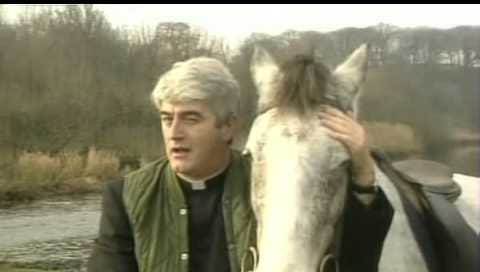



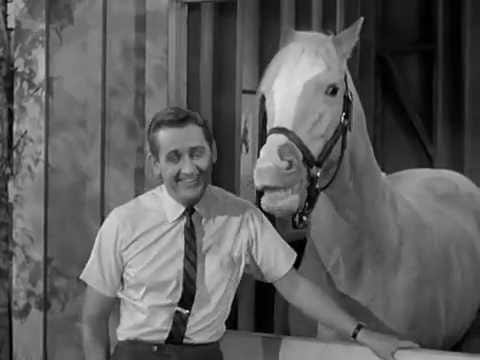
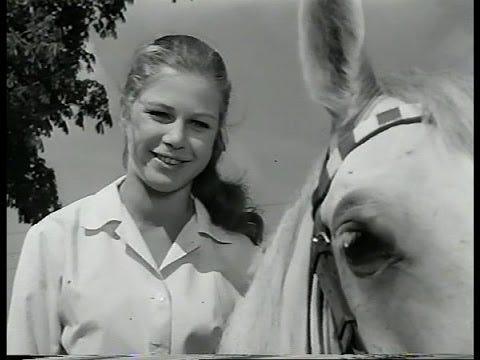
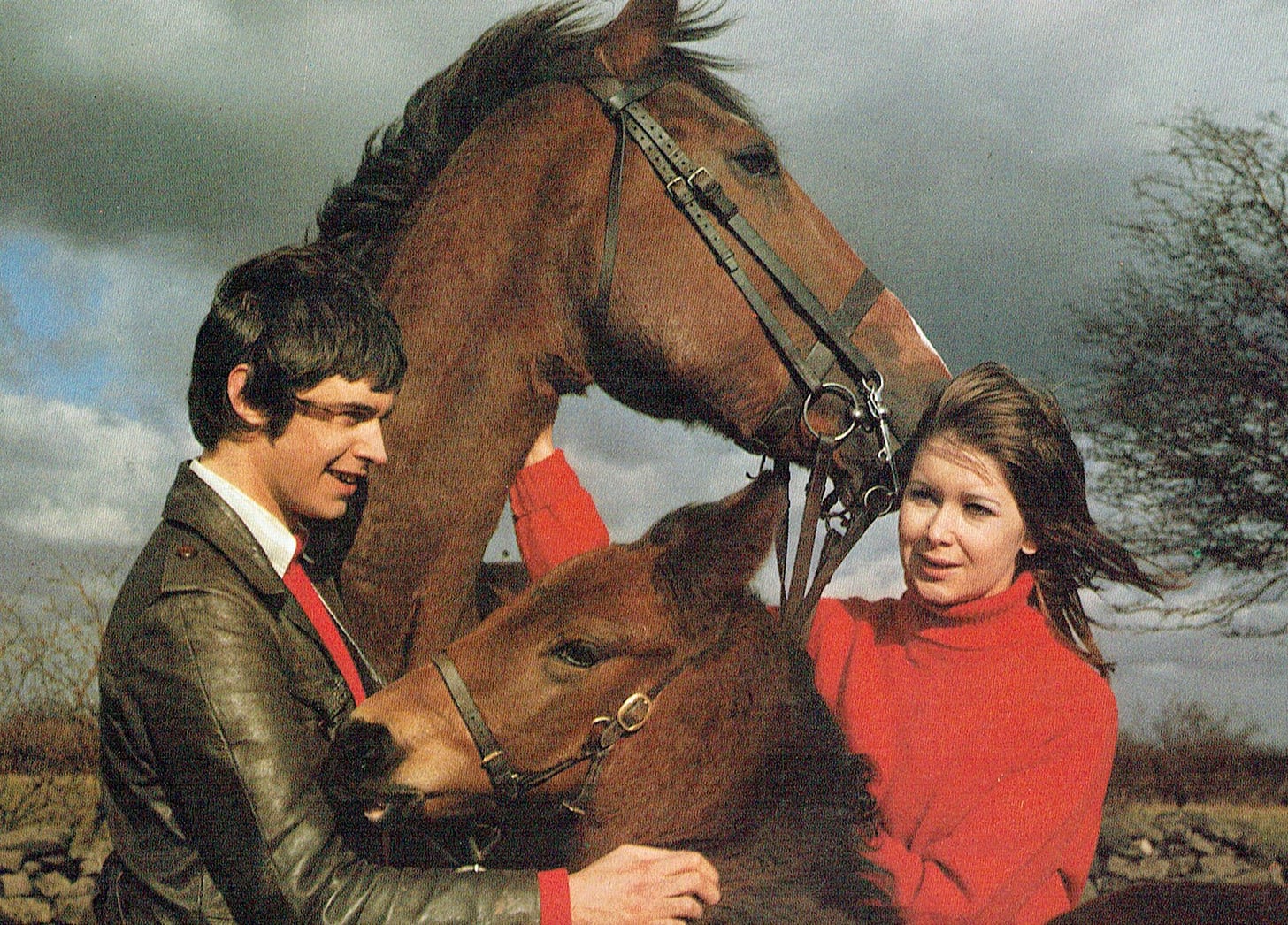
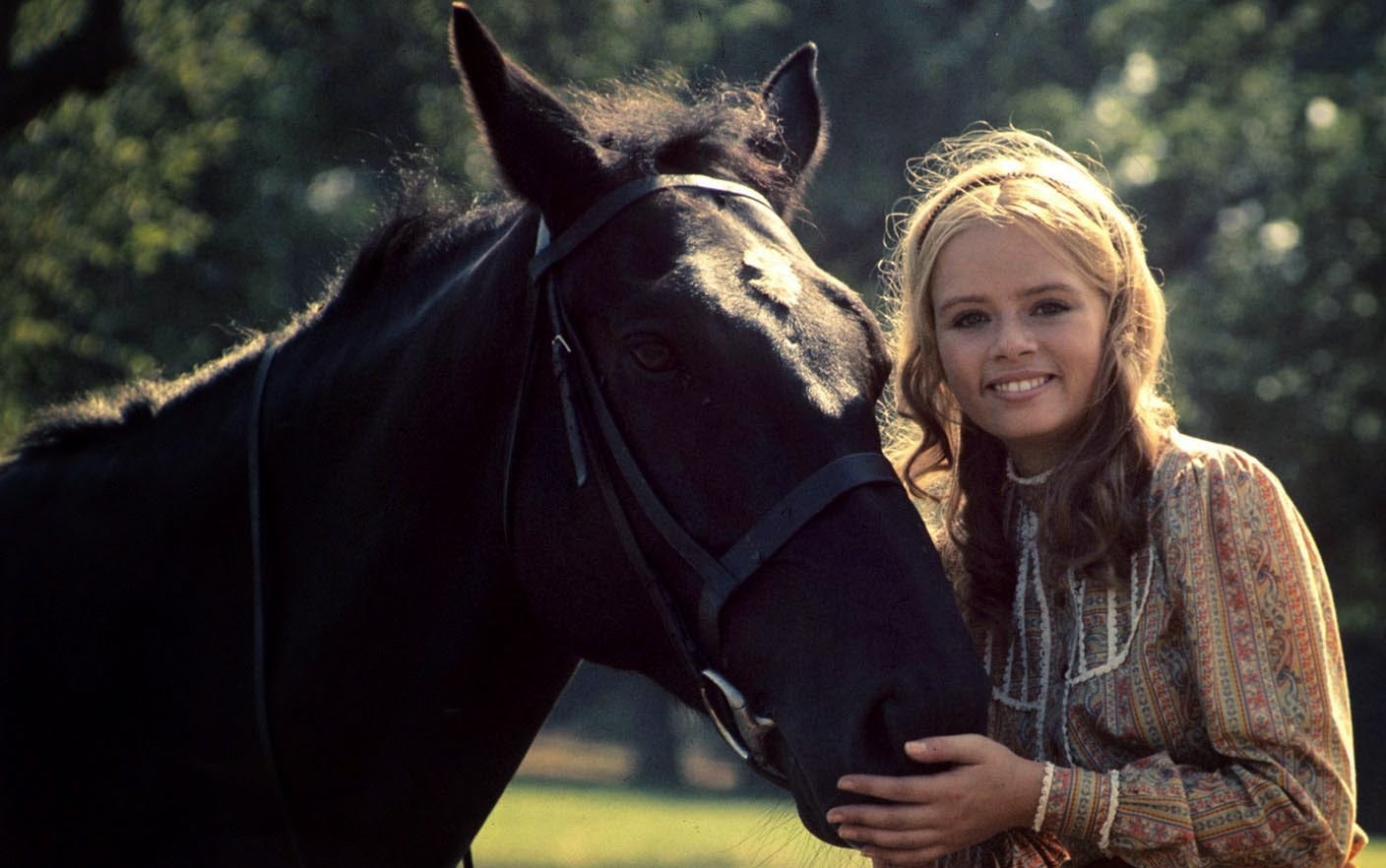
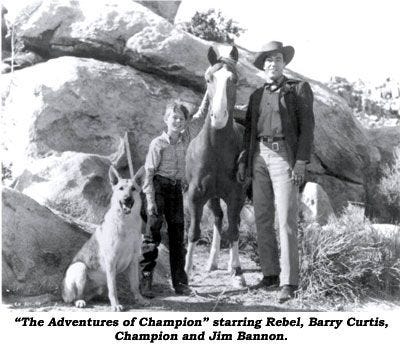
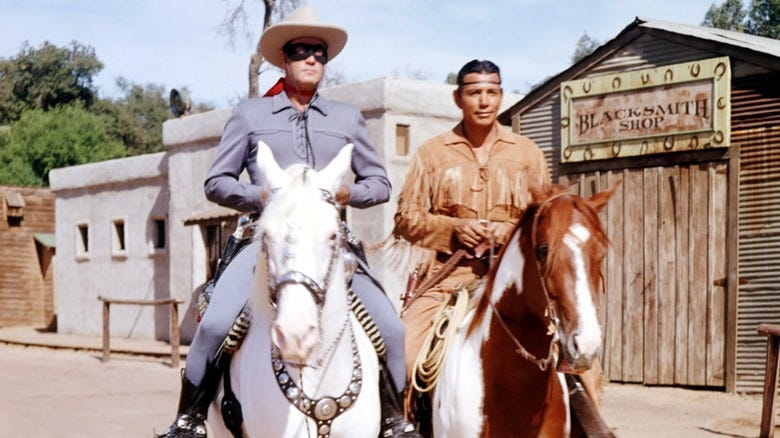
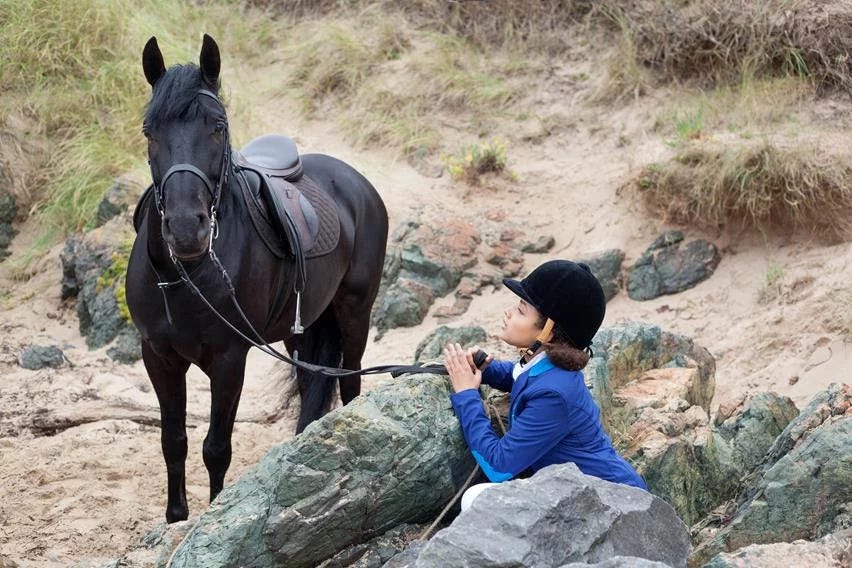
You missed Only Fools and Horses…good selection in all seriousness.
I actually watched some White Horses on YouTube a few weeks ago....